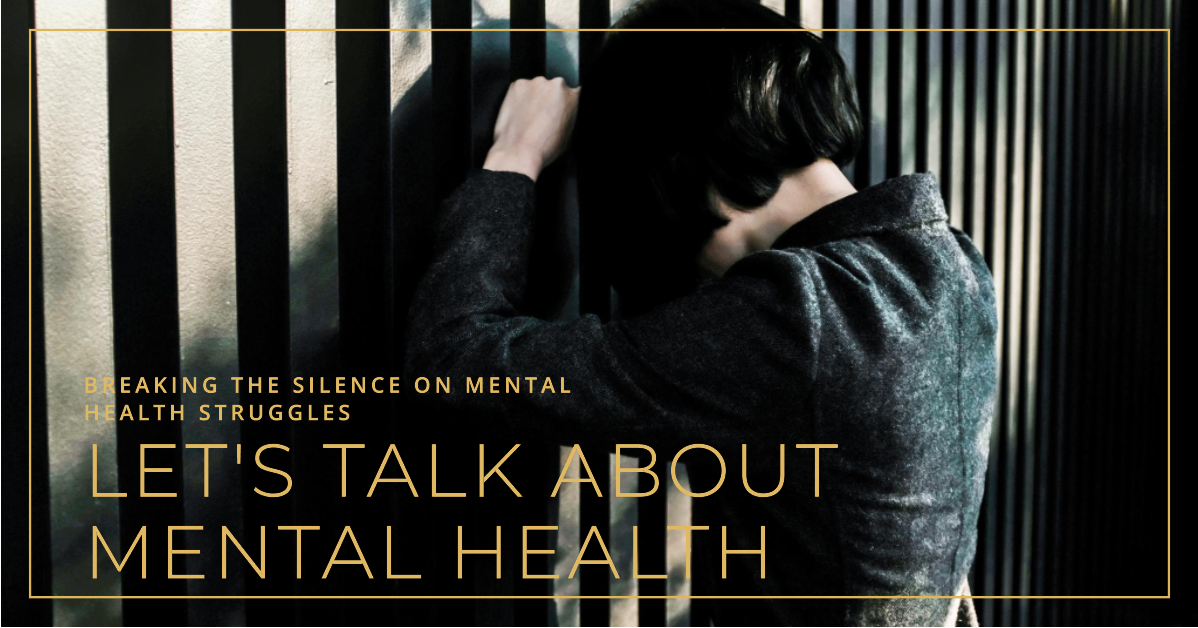Why We Need to Break the Silence on Mental Health Struggles
In a world where conversations about mental health are often hushed, it's crucial to understand why breaking the silence surrounding mental health struggles is not just a choice but a necessity. In this blog post, we delve deep into the reasons behind this imperative need, exploring the societal impact of silence and the importance of mental health awareness. Join us on this journey as we uncover the hidden truths about mental health and advocate for a world where silence is shattered, and compassion prevails.

Mental health struggles affect millions of people around the world, yet they remain shrouded in silence and stigma. The reluctance to openly discuss mental health has far-reaching consequences, and it's high time we address this issue head-on. In this blog post, we'll explore the multifaceted reasons why we need to break the silence around mental health struggles.
The Power of Stigma
Stigma is a formidable force that keeps many individuals from seeking help for their mental health issues. Society's misunderstanding of mental illness has led to the marginalization and discrimination of those who suffer. The fear of judgment and rejection often leads people to suffer in silence, exacerbating their mental health struggles.
Mental health stigma not only affects individuals but also perpetuates a culture of silence and shame. When people are afraid to speak out about their experiences, it reinforces the misconception that mental health issues are something to be hidden, further deepening the stigma.
The Ripple Effect of Silence
The consequences of silence on mental health struggles ripple through our communities, affecting not only individuals but also society as a whole. When we suppress discussions about mental health, we miss opportunities for early intervention and support. This leads to a higher burden on healthcare systems, as issues may escalate to crisis levels before they are addressed.
Silence also perpetuates the cycle of ignorance. Lack of awareness and understanding about mental health struggles hinders the development of effective policies and support systems. Society remains ill-equipped to provide the necessary resources for those in need, leading to a perpetuation of suffering.
The Importance of Mental Health Advocacy
Breaking the silence on mental health struggles involves actively advocating for change. Advocacy efforts play a crucial role in challenging societal norms, promoting awareness, and demanding better mental health support systems.
Mental health advocates are instrumental in sharing personal stories, dispelling myths, and providing educational resources. They create safe spaces for open conversations, reducing the stigma and encouraging others to seek help when needed.
The Silence Within Families
Within the confines of our homes, silence can be particularly damaging. Families often grapple with mental health issues silently, either out of shame or a lack of understanding. This silence can perpetuate the cycle of suffering, as individuals may not recognize the signs of mental distress in their loved ones.
By breaking the silence, families can create an environment of support and empathy. Open conversations allow for early intervention and access to professional help, ultimately improving the well-being of all family members.
Mental Health Education: A Path to Empowerment
One of the most effective ways to break the silence surrounding mental health struggles is through education. When people understand the complexities of mental health, they are more likely to empathize with those who are suffering and offer support.
Schools, workplaces, and communities can all play a role in promoting mental health education. By integrating mental health awareness into curricula and training programs, we empower individuals to recognize the signs of mental distress, offer assistance, and reduce the stigma associated with mental illness.
The Healing Power of Sharing
When individuals with mental health struggles find the courage to share their experiences, they not only help themselves but also inspire others to do the same. This sharing of stories fosters a sense of community and solidarity, reducing feelings of isolation.
Through social media platforms, support groups, and online forums, people can connect with others who have similar experiences. This sense of belonging and understanding can be incredibly therapeutic and affirming.
The Call to Action
We cannot underestimate the urgency of breaking the silence on mental health struggles. It is a call to action for individuals, communities, and societies at large. We must challenge the stigma, prioritize mental health education, and provide resources for those in need.
By using hashtags like #MentalHealthMatters and #BreakTheSilence, we can contribute to the broader movement to destigmatize mental health issues. It's time to ensure that no one suffers in silence and that mental health is recognized and treated with the same importance as physical health.
Conclusion
In conclusion, breaking the silence around mental health struggles is not just a choice; it's a societal imperative. Stigma, silence, and ignorance perpetuate suffering and hinder progress. By actively advocating for mental health awareness, education, and support, we can create a world where compassion prevails, and no one feels the need to suffer in silence. Let's be the change-makers who ensure that the voiceless find their voices and that mental health struggles are met with empathy and understanding. Together, we can break the silence and build a more compassionate world.










